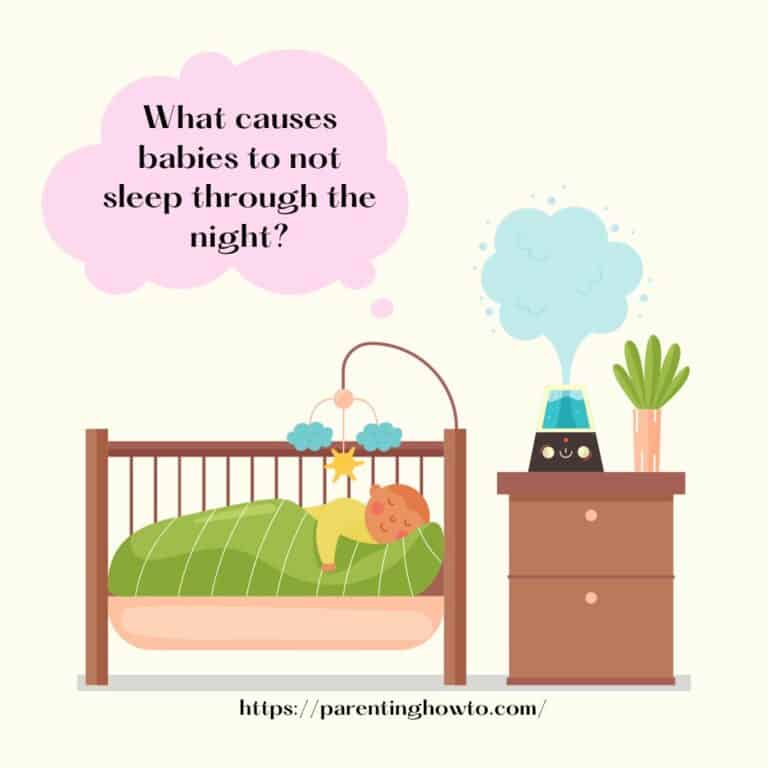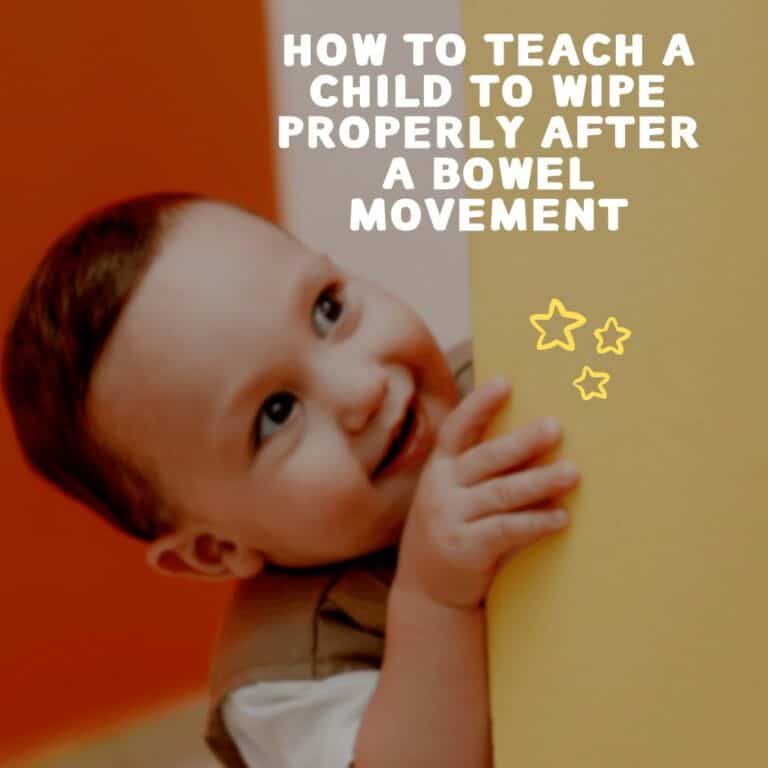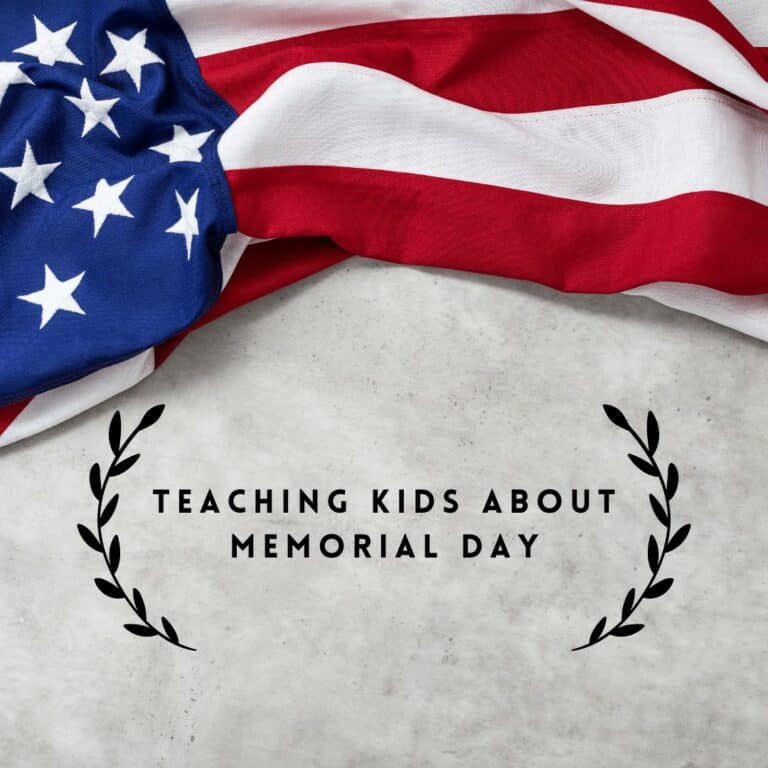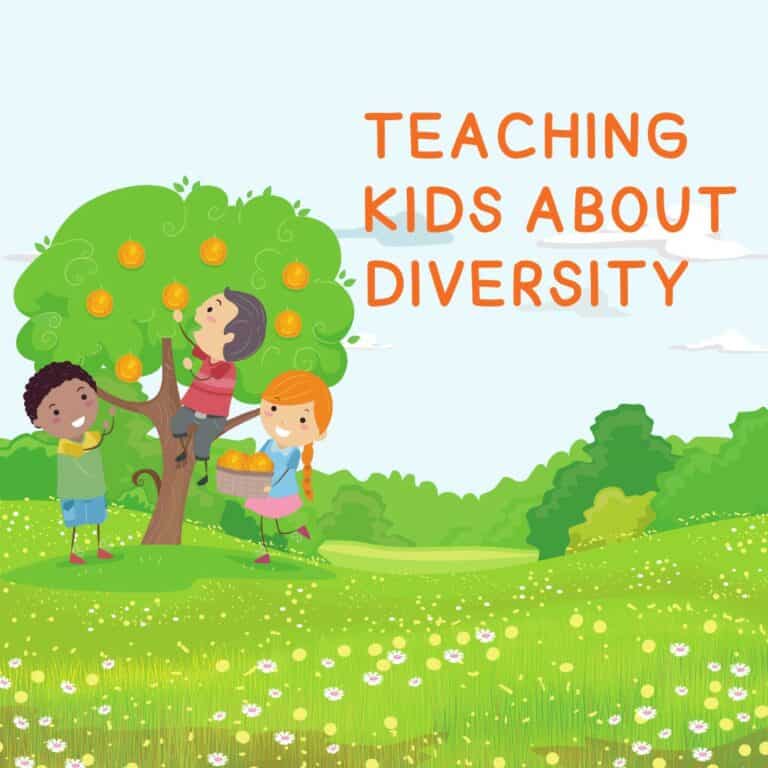Are you curious about At what age do babies start talking gibberish and making noises? Or wondering what those early baby sounds actually mean?
You’re not alone! Babies start talking gibberish as early as 4 months old, and it can be one of the most exciting moments for parents.
In this blog post, we’ll explore when babies begin to make baby talk, what it means, and how you can help your child learn to talk.
What is Gibberish?

Gibberish is a type of speech that consists of sounds and syllables that may sound like real words but don’t actually mean anything. It is most commonly heard in young children who are just beginning to learn language and don’t yet have the skills to put together meaningful sentences.
Gibberish typically begins around 6 months old and is a natural part of learning how to talk.
As children continue to develop their language skills, they tend to use gibberish less and less until it eventually disappears altogether.
Although it may seem like nonsense, gibberish can actually help babies practice their pronunciation, rhythm, intonation, and listening skills—all important components of communication.
What Age Does Gibberish Start?

Babies start to babble as early as 4 months old, but it isn’t until they reach around 18 months of age that they begin to use gibberish.
Gibberish is a type of speech that sounds like real words, but doesn’t have any real meaning. It may sound like the baby is trying to mimic adult speech and language patterns, but these words are not actual words.
Gibberish is a normal part of toddler development and helps them practice using their voice and articulating sounds.
As children grow older, their gibberish becomes more complex and begins to resemble real language more closely.
By 2 years old, most children will be using more real words than gibberish, though some children may take longer or shorter timespans to reach this milestone.
If your child is struggling with their speech development or has been speaking in gibberish for an extended period of time without any changes, you should consider consulting a doctor or speech pathologist for advice on how best to help your child.
With the right guidance and support, your toddler can make progress toward speaking in full sentences before you know it!
Benefits of Babies Talking Gibberish
Babies talking gibberish may seem like nonsense, but it is actually an important part of their development.
This type of babbling helps babies learn the basic sounds and syllables that are used to build words and sentences. As they progress, babies will start to put these sounds together in meaningful ways.
By engaging in this type of babbling, babies are gaining valuable language skills.
The repetitive sounds help them understand how language works and how certain combinations of sounds create meaning. They also begin to recognize patterns in speech as they hear adults talking around them.
The Benefits of Babies Talking Gibberish go beyond language acquisition. It also helps with the development of their vocal cords and facial muscles as they practice controlling their breathing and making different types of noises with their mouths.
Additionally, this type of babbling helps strengthen the bond between baby and caregiver, since it encourages interaction between the two.
So even if your baby’s gibberish seems like nothing more than a bunch of nonsensical babble, rest assured that there are many benefits to them doing so!
Encourage your little one’s verbal exploration by responding positively when they make any kind of noise or sound, even if you don’t understand what they’re saying!
Different Types of Gibberish Sounds
Gibberish is a type of speech that is used by toddlers in their early development. It is an imitation of the language they hear around them and consists of strings of syllables and sounds that don’t necessarily make up real words.
While not all gibberish sounds are the same, there are certain types that most children learn as they develop their language skills.
The first type of gibberish sound is “P” sounds which include pop, pee, and pig. This type of sound usually appears in the 24-36 month age range as it requires some coordination to make this particular sound accurately.
The second type of gibberish sound is “B” sounds such as beep, bye, and ba-ba. These types of sounds tend to come later in toddler language development with most children mastering them by 17 months old. They are often heard as part of conversation between toddlers and adults or between two toddlers playing together.
The third type is nonsense syllables which can be heard from babies as early as 6 months old when they start to babble more regularly. This form of babbling eventually becomes more refined into what looks like a conversation with other toddlers or adults but still consists mostly of gibberish words or syllables rather than real words.
Finally, hearing issues can sometimes cause 2 year olds to speak in gibberish more than usual so if you suspect this may be an issue for your child it would be wise to have them checked out by your family doctor just in case there may be a problem that needs addressing.
In conclusion, gibberish speech can help us understand how our little ones learn language over time and serves an
How to Help Babies Learn to Talk
Learning to talk is an important milestone for babies and parents. As babies grow, they learn to communicate with the world by exploring different sounds, words, and gestures.
It’s an exciting time as your baby starts to make more noises and recognize familiar phrases. Here are some tips to help your baby develop their communication skills:
- 1. Talk regularly to your baby – Talking regularly helps your baby learn the rhythm of language; it also helps them become familiar with the sound of a parent’s voice. Even if your baby can’t understand all the words yet, they will benefit from listening to you!
- 2. Spend time together – Spend quality time together where you can give your full attention to play and talk with your baby without distractions or interruptions. Make sure you respond when they babble or make noise; even if it doesn’t seem like words yet, it’s still a form of communication!
- 3. Read with them – Reading stories can be fun for both of you! Point out pictures in books as you read aloud so that your child can begin making connections between what they see and hear. This will help them learn new words at their own pace while also creating special moments between parent and child that they will remember forever!
- 4. Sing songs – Singing songs is a great way to teach new words while having fun at the same time! Sing simple nursery rhymes that have a steady beat so that babies can start recognizing familiar rhythms and tones which will help them learn how language works in conversation later on down the road.
Encourage communication early on in life by talking regularly with your little one, reading stories together, singing songs, and
Is it Normal for Babies to Not Talk at All?

It is normal for babies to not talk at all until they are around 4 months old. Before they are able to form words, babies will attempt to imitate the sounds they hear and start babbling around 4 months.
As they get older, usually around 9 months, babies will start to string sounds together and incorporate different tones of speech. By 10 months, babies should understand gestures and point or grunt to indicate their wants.
However, some children may experience a speech delay which can be caused by a number of factors such as genetics, hearing problems or environmental issues like poverty or a lack of language exposure.
Speech therapists look for children age 2 and up to use more real words than jargon. By the time children are 4 years old, they should be mostly understood by people who don’t know them.
If your child is having difficulty speaking or communicating in any way it is important that you consult with your pediatrician as soon as possible so that appropriate action can be taken.
When Should You Worry About your Baby’s Talking Ability?
When it comes to your baby’s talking ability, there is no need to worry if they are not speaking words by the time they reach 15 months old. Most babies will start babbling at around 4 months of age and begin practicing their repetitive sounds such as “da da” around 7 months.
By 2 months, most babies will be cooing and gurgling, and by 4 months they should be beginning to babble. At 6 months old, babies will be able to string vowels together (such as “ah”) and from 9-12 months of age, they may start using some single words.
If your child has not started saying their first word by 15 months or has less than 25 words at 2 years of age, then it is important to speak with your doctor.
They can assess whether there are any underlying issues that could be causing delays in language development or refer you for further testing if necessary.
That being said, toddlers often master nonsensical speech in their second year and can produce strings of gibberish that sound like a faux version of adult language.
By 18 months most toddlers are saying about 20 words, while 50 or more words is the norm by the time they turn two years old.
As kids get older they also begin combining syllables and eventually forming sentences – but this process takes time!
Tips and Tricks for Encouraging Speech Development in Babies
Speech and language development is an important part of every baby’s growth. When babies start to develop the ability to communicate, it can be both rewarding and exciting for parents.
Encouraging speech development in babies is a great way to foster the bond between parent and child, as well as help your little one learn how to express themselves.
Here are some tips and tricks for encouraging speech development in babies:
1. Talk with your baby – Even when they seem too young to understand, talk with your baby about what’s going on around them. Describe simple things like what you’re doing or what they can see outside. This helps them learn new words and practice their own vocalizations.
2. Sing songs – Singing songs is a fun way to introduce your baby to new words and sounds while also helping them recognize patterns in language. You don’t have to be a professional singer! Just singing along with whatever song comes on the radio or playing nursery rhymes will do the trick!
3. Read books – Reading books is not only fun for you and your little one, but it also helps build their vocabulary and understanding of spoken language. Choose books that have pictures that can help explain what’s going on in each story as well as ones with simple stories that use repetition so they can get used to hearing certain words again and again!
4. Respond when they make sounds – It may seem like your baby isn’t saying much, but respond when they make noises so they know you recognize their efforts! Acknowledging their attempts at communication lets them feel heard which encourages further exploration of language skills!
Ways to Foster a Language Rich Environment

Having a language-rich environment is essential to helping children develop the language and communication skills they need.
There are many ways to help create an environment that will foster their language development.
One of the most important ways to stimulate language development is by talking to your child often.
Talk about what you’re doing, what you’re seeing, and how you feel. Describe objects and explain simple concepts like colors or shapes in detail.
Ask questions and encourage your child’s responses with body language and facial expressions.
Reading books together is another great way to increase language exposure.
Not only does reading give your child access to new words, but it also helps with concentration, listening skills, and understanding of stories.
You can also add music into the mix by singing songs together or playing musical instruments such as drums or xylophones – this stimulates their auditory senses as well!
Playing games can also be beneficial for children’s language development since it encourages them to interact with others in a fun way and think about what they say before they speak it out loud.
Games such as “I Spy” or “Simon Says” are easy ways for kids to learn new words while playing together.
Finally, provide toys that encourage verbal expression such as toy phones or dolls that talk back when you press their buttons – this allows children to practice the words they already know in a fun way!
Allowing your child some time alone with these toys will help them gain confidence in their speaking skills too!
By following these simple tips, parents can easily create a nurturing environment where children will thrive in learning new languages and developing strong communication skills!
Signs that Your Baby is Ready to Learn Words

It’s an exciting time when your baby starts to make baby babble and you can start to see them picking up new sounds.
As your baby grows, they will begin to practice their skills in speech and language and you may notice certain signs that show your baby is ready to learn words.
At around 4 months, your baby will start with babbling – repeating sounds like “ma-ma” or “ba-ba”. As they get older, at 6 months old, you may hear more word-like syllables such as “da-da” or “ga-ga”.
By 9 months, babies may begin understanding simple commands such as ‘no’ or shaking their head when they hear a negative word.
They also may start to repeat simple words, although it is unlikely that they understand the meaning behind them yet.
At 10 months old, babies can often suddenly produce their first recognizable words such as “mama” and “dada”. By this age, the consonants of many words have started to emerge and some babies even have a vocabulary of 2 or 3 words.
It’s important not to expect too much too soon from your little one – all babies develop differently so keep talking away!
Conclusion
Talking is an important milestone in a baby’s development, and it starts with babbling and cooing.
Babies typically begin to babble around 4 months of age and start to use gestures like clapping at 8 months.
By 12-18 months, babies usually start saying single words, and by the time they are two years old they will have a large vocabulary.
It is very common for toddlers to understand more language than they can say at this stage. After the jargon phase comes true talking where your child starts forming sentences and speaking clearly.
Every child develops differently so there is no one-size-fits-all timeline for when kids should start talking; however, most children will have a good grasp of language by the time they are three years old.



